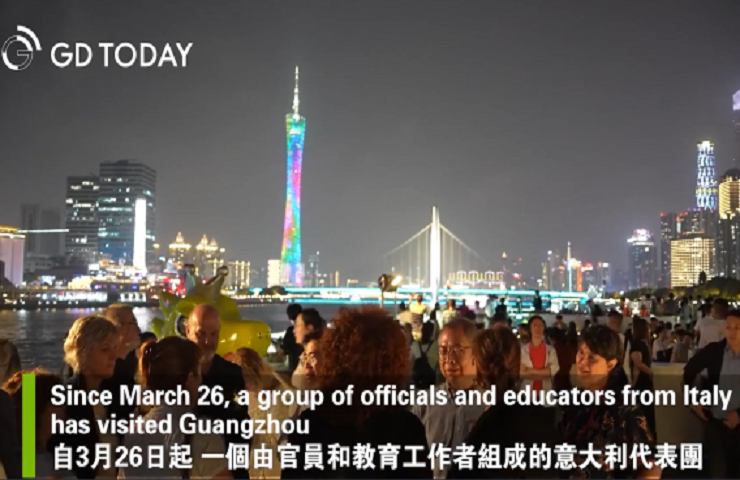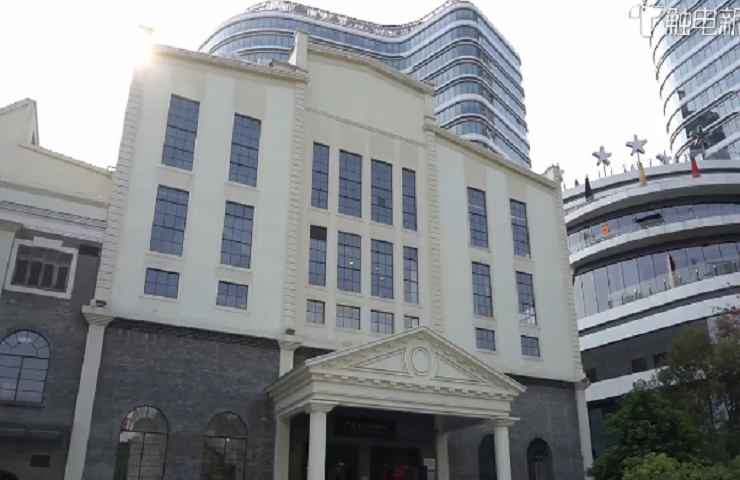SMEs thrive as new momentum to economic growth in Guangzhou

Guangzhou Huangpu district has a good living environment and solid economic foundation. Jia Zihao/for China Daily
Yuan Jianhua will never forget the subsidy from the local government in 2002 to help his company survive. It has now become a domestic leader in the development and production of laboratory consumable products.
"My experience tells me that a startup needs at least 10 years of survival and another 10 years to develop and succeed. Unfortunately, a big number of startups died in the first 10 years, as fund shortages were a major problem," said Yuan, president of Guangzhou Jet Bio-Filtration based in South China's Guangdong province.
He founded the company in Guangzhou Development District in 2001, which is under the administration of Huangpu district.
Two years later, the company was on the verge of bankruptcy. "I received a 200,000 yuan ($28,247) subsidy from the municipal department with the help of the district government at a critical point, which was big enough to pay 20 months of salaries to my 12 employees then," he said.
In 2018 the company earned more than 200 million yuan and sold its products to about 50 countries and regions. These include the United States, Japan, Canada and Germany. Overseas markets contributed nearly 80 percent of annual revenue, according to the company's figures.
In a sector that was once dominated by foreign companies, Yuan said the company now possesses 86 patents, including 23 invention patents. It aims to break the technical and market monopoly of the foreign competition and cut the prices of laboratory consumable products in the domestic market by 30-40 percent.
"We will take root in the district because the local government is highly efficient. It has carried out quite a few incentive policies to support the development of private companies and small and medium-sized enterprises. The subsidies and benefits the companies can apply for are clearly stipulated," Yuan said.
The second phase of its industrial park, taking up an area of 160,000 square meters in GDD, started construction in March.
It is expected to become Asia's largest manufacturing base for bio-laboratory consumable products, he added.
Located in eastern Guangzhou, capital of Guangdong province, GDD ranked first in terms of technological innovation. This was among all 219 State-level economic and technological development districts in China for 2018, according to an evaluation by the Ministry of Commerce.
The official figures indicate that the district has more than 20,000 innovative companies, of which at least 2,000 were credited as high-tech companies.
More than 80 percent of these high-tech companies are private companies and SMEs, and more than 80 percent of the invention patents, new technological achievements and new products in GDD are coming from private companies and SMEs, which have already been the major force for the district's development.
GDD's strength in innovation should be attributed to its strategy of emphasizing the development of private companies and SMEs, which the local government believes are flexible, dynamic capable of propping up the local economy. "The private companies and SMEs have served as new momentum to enhance the economic development quality of the district," said Zhao Birong, deputy director of the industry and information technology bureau of Huangpu district.

SMEs play a key role in boosting the economic development of Huangpu district, according to the local government. Jia Zihao/for China Daily
In 2018, 93.4 percent of the 903 industrial companies in Huangpu with an annual industrial output of more than 20 million yuan each were private companies and SMEs, according to government statistics. They contributed 47 percent to the district's total industrial output, up from 41.1 percent in 2017 and 37.2 percent in 2016.
They are mainly scattered in the strategic emerging industries in the district. They include automobile, electronic, energy, chemistry, electronic machinery, new-generation information technology, smart equipment, biomedicine and new materials. To energize private companies and SMEs, the district government issued 18 incentive measures in November 2018 to help with fund shortages, development transition and market exploration.
As one of the measures, the local government will coordinate an industry investment fund of 30 billion yuan. It will invite the participation of State-owned enterprises and support the growth of advanced manufacturing, modern service and strategic emerging industries.
The venture capital institutions that invest in private and SMEs in the seed stage and initial stage can get ample rewards, according to the new policy.
The local government will also set up a development fund with 10 billion yuan for private companies to solve their stock pledge and loan problems.
According to the measures, the government will help private companies and SMEs access a 30 billion yuan fund.
In it, the district government will subsidize companies for bank interests, guarantee costs and the interests of finance leasing.
The government also pledged to cut administrative costs, optimize customs' clearance procedures, lower industrial land and housing costs and build more incubators.
Huayin Health Group, a third-party medical laboratory that focuses on medical examinations and diagnosis in GDD, got a fund of 23 million yuan due to its intellectual property recently.
In a trial move supported by the local government, Industrial Securities issued an asset-backed securitization bond in September. It aims to raise 301 million yuan for 11 private high-tech SMEs in GDD, including Huayin, based on their patent license fees.
"The faster a company develops, the bigger fund demands it will have," said Huang Chunbo, founder and general manager of Huayin Health. "Besides equity and bond financing, banks are our major channel but intellectual property usually doesn't work. They need fixed assets."
The innovative funding attempt is a boon to high-tech SMEs with patents, which can solve financial problems and lower financing costs, he noted. Huang added that the government efforts should not be neglected.

Staff members conduct an experiment at a lab of Huayin Health Group in the district. Zhao Yi/for China Daily
Copyright © Foreign Affairs Office of Guangzhou Municipal Government,
Hong Kong and Macao Affairs Office of Guangzhou Municipal Government All rights reserved.
Presented by China Daily.
京ICP备13028878号-28















